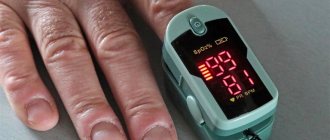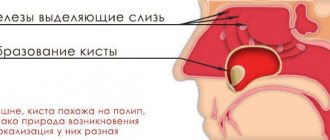Figure 1 - The child has obvious inflammation of the bronchi
Medications for bronchitis are medications that are prescribed for inflammation of the airways (bronchial tubes). It is usually caused by a viral infection (rhinoviruses, adenoviruses, influenza, etc.). There are cases where the inflammatory process developed during prolonged exposure to dust, smoking, and air pollution. Transmission of viruses occurs through airborne droplets or through direct contact of a patient with another person.
Sometimes inflammation of the bronchi can be caused by exposure to bacteria. Accordingly, the treatment strategy for such bronchitis will differ from the treatment of a disease with a viral etiology.
Typically, the human body copes with the viral form of the disease on its own. Treatment is aimed at relieving symptoms of the disease.
However, untreated bronchitis can lead to unpleasant and sometimes serious consequences: the acute form can develop into chronic inflammation of the bronchi, especially if additional risk factors remain, and the development of obstructive pulmonary disease, pneumonia, and asthma is possible.
If the condition of a patient with bronchitis does not improve within 5-7 days, you should visit a doctor to prescribe medications and, if necessary, conduct research.
The main symptom of bronchitis is a wet (productive) cough that does not stop for ten days to several weeks. With its help, the body removes phlegm that collects on the surface of the inflamed bronchi. Signs of the disease also include a feeling of “stuffiness” in the chest, shortness of breath, sometimes rapid breathing and chills (fever).
It is important to remember that these symptoms may indicate the development of other diseases, so the patient’s condition is assessed comprehensively. Such an examination can only be carried out by a doctor, who also prescribes treatment.
According to the form of its course, bronchitis is divided into acute and chronic.
Chronic bronchitis
is a chronic inflammation of the bronchial tubes.
Chronic bronchitis is considered if the cough continues for at least three months a year for two years in a row. According to etiology
(causes of occurrence),
viral, bacterial and allergic bronchitis are distinguished.
More than 80% of bronchitis is viral, infection occurs through airborne droplets, and proceeds like a normal acute respiratory viral infection, with the difference that the viruses that cause bronchitis prefer to “settle” in the bronchial tissue.
Atrovent
This drug helps well with chronic bronchitis, especially if attacks of suffocation and bronchospasms occur suddenly (for example, when a person is in the cold). You can buy Atrovent in the form of an aerosol or solution for inhalation. Aerosol is a more convenient option, especially if you do not know how to use an inhaler. Judging by patient reviews, Atrovent is well tolerated and is not absorbed into the blood. This eliminates side effects such as increased blood pressure and tachycardia. Very rarely, allergic reactions may occur when using Atrovent. Contraindications include individual intolerance. This remedy for bronchitis is prescribed to adults and children over 6 years of age. The effect of taking Atrovent lasts 6-7 hours, but this drug cannot be used constantly.
Atrovent
Boehringer Ingelheim, Germany
— COPD (including chronic obstructive bronchitis, pulmonary emphysema);
- bronchial asthma of mild to moderate severity. from 184
495
- Like
- Write a review
Symptoms of bronchitis
- Bronchitis has classic symptoms for any ARVI:
- Increased body temperature
- A sore throat
- Runny nose
- Shortness of breath, difficulty breathing, noisy breathing (not always)
- Crepitating (crackling) and quiet whistling rales
- Cough
The main and main symptom of bronchitis is cough.
It can be dry or wet, depending on the form of the disease and the stage of its course. One of the variants of the course of bronchitis in children is obstructive bronchitis - this is a condition in which spasm of the bronchi occurs, the mucous membrane swells, and phlegm becomes difficult to discharge - it accumulates in the bronchi, causing difficulty breathing. Bronchial spasm also contributes to difficulty breathing - this is the main danger of obstructive bronchitis - the baby begins to choke. Obstructive bronchitis is characterized by noisy exhalation with a whistle.
Dr. MOM
This drug for bronchitis has a unique composition: it contains extracts from 10 medicinal plants that help remove mucus from the lungs and are excellent mucolytics. "Doctor MOM" is available in the form of syrup, lozenges and ointment. The basis of the drug is not alcohol, but water, so the medicine for bronchitis is prescribed to children from three years of age. “Doctor MOM” not only soothes the bronchial mucosa, but also reduces inflammation well. The drug makes sputum less viscous and helps it pass more easily, while it is not so painful for a person to cough. Prohibitions include pregnancy and breastfeeding. The composition contains sugar, so patients with diabetes should take this into account. This remedy for bronchitis has almost no contraindications, it tastes good, can be taken for a long time, and is even prescribed as a preventive measure for colds.
Doctor Mom syrup
Unique Pharmaceutical Laboratories, India
Doctor Mom is a bronchodilator (dilates the lumen of the bronchi), expectorant, anti-inflammatory, decongestant.
from 161
5.0 1 review
555
- Like
- Write a review
Diagnosis of bronchitis
To diagnose bronchitis, neither an X-ray examination nor additional tests are needed.
To make a diagnosis, the doctor simply needs to perform auscultation - listen to the lungs using a phonendoscope - an experienced pediatrician will immediately “hear bronchitis”. Additional examinations are prescribed
in order to determine the type of bronchitis - viral or bacterial - the purpose of therapy depends on this. As you know, antibiotics have no effect on viruses, so they are prescribed only if the doctor believes that bronchitis is bacterial in nature. A blood test can tell you this. Also, the pediatrician determines the type of bronchitis by collecting an anamnesis (medical history): how long has the child been sick, how the disease progresses, how long ago was it sick last time, how was it treated, etc.
X-ray
for bronchitis, they may be prescribed in order to exclude pneumonia, a possible complication of this disease. Unfortunately, it is difficult to diagnose pneumonia in young children without an x-ray - local changes in some segments of the lungs cannot always be heard.
Salbutamol
"Salbutamol" is an "emergency" remedy for bronchitis. This drug relaxes the smooth muscles of the bronchi. The positive effect of the drug occurs literally in five minutes, and the effect lasts five hours. “Salbutamol” is an aerosol for inhalation, therefore, before using this remedy for bronchitis, you must consult a doctor and then strictly follow the instructions. One of the disadvantages of Salbutamol is the possible development of a “ricochet effect”, in which each subsequent attack can become more intense. That is why “Salbutamol” is exclusively an “ambulance” for an attack of suffocation: the drug quickly relieves the spasm. The medicine has many contraindications and side effects, so it is prescribed only by a doctor.
Salbutamol
How to treat bronchitis
There is no universal treatment regimen for bronchitis.
The choice of therapy depends on many factors: the type of bronchitis (viral or bacterial), duration, characteristics of the course of the disease, cough (it can be dry, wet, only during sleep or after sleep, etc.), the condition of the child.
When treating bronchitis
, it is very important that normal air humidity (40-60%) is maintained in the room where the child is located. It is necessary to protect the patient from tobacco smoke (passive smoking during bronchitis is very dangerous).
Prevention
In the modern situation, it is necessary to pay great attention to the prevention of bronchitis. Prevention in children is vaccination against various infections. It is important that not only the child is vaccinated, but that everyone around him is also vaccinated. A big role for children is played by hardening, fresh indoor air, adherence to a daily routine, constant physical education, active walks in the fresh air, proper and regular healthy nutrition appropriate for the child’s age, and the use of vitamins.
Is it possible to use antitussive drugs?
A severe cough exhausts both the baby and family members. Of course, you want to alleviate the child’s condition by giving him a drug that relieves cough. But you should absolutely not do this without a doctor’s recommendation! Why? Firstly
, there are a great variety of antitussive drugs, and it is difficult to choose the right one on your own.
There is no drug that can be used from the beginning to the end of the disease - the active substance is selected depending on the stage. Secondly,
an unreasonable selection of an antitussive drug can provoke complications, for example: you gave a child a medicine that suppresses cough at a time when sputum begins to separate, because of this he cannot get rid of sputum, it stagnates and leads to pneumonia.
Thirdly,
children's medications are produced mainly in the form of syrups containing fragrances, flavors, preservatives, stabilizers, etc. - these components often cause allergies.
What you need to pay special attention to
If your child's condition worsens or new symptoms appear
- Cough does not go away after a month
- Bronchitis recurs (more than three episodes per year)
In these cases, be sure to show the child to the pediatrician!
SEPARATELY Do I need to see a doctor for a common acute respiratory infection? Young children can get sick with acute respiratory infections 8-12 times a year - and this is normal, since their immunity is developing, their body is just getting acquainted and learning to resist many viruses and bacteria. And parents, already accustomed to endless colds, often treat the child themselves - because they do not see the point in visiting a doctor every time the child gets sick. But the problem is that only a doctor can determine whether your child has a truly banal acute respiratory infection that does not require drug treatment and intervention in its course, or a more serious condition. In children, all processes go quickly, not all diseases have an acute onset, and without the control of an experienced doctor, you can very easily miss a complication or a more serious illness: the same bronchitis, tracheitis, pneumonia, etc. In addition, children usually play even with a serious illness , jumping and running, which can mislead parents regarding the actual severity of the disease. Therefore, if your child gets sick, be sure to show him to the pediatrician - after all, only a doctor can objectively assess your baby’s condition!
Inhalations: benefits and harm Now nebulizers, devices for inhalation, are extremely popular among parents. Doctors unanimously agree that inhalations are a good thing. Using this device, we can deliver the medicine directly to the bronchi, which reduces the load on the gastrointestinal tract and circulatory system and ensures the rapid action of the drug. But! A nebulizer can only be used when indicated and when using certain medications prescribed by a doctor. Nebulizers are designed to deliver medication to the middle sections of the respiratory system, that is, they are effective for bronchitis and asthma. They should be used with caution for upper respiratory tract diseases (common acute respiratory infections or acute respiratory viral infections). Why? Firstly, because the drugs used to treat the lower respiratory tract are not effective in the inflammatory process in the nasal cavity and pharynx, and secondly, for using a nebulizer for diseases of the upper respiratory tract there are a number of conditions and rules that only doctor.
Bromhexine
The main advantages of this remedy for bronchitis are its affordable price, complex effects and the absence of side effects. "Bromhexine" copes well with a productive, wet cough. The drug for bronchitis can be bought at the pharmacy in the form of tablets and syrup. "Bromhexine" reduces the viscosity of sputum and improves its discharge. But do not expect an immediate effect from the drug - the therapeutic effect occurs on the second to fifth day from the start of treatment with Bromhexine. This medicine for bronchitis is prescribed to adults and children over six years of age. Contraindications include pregnancy and breastfeeding. The maximum course of treatment with Bromhexine is 28 days. The drug acts comprehensively for acute and chronic bronchitis and other bronchopulmonary diseases. "Bromhexine" has a strong expectorant effect and a minimal list of contraindications. But you should remember that this medicine should not be taken together with drugs that contain codeine.
Bromhexine
OJSC Pharmstandard-Leksredstva, Russia
Diseases of the respiratory tract accompanied by the formation of difficult-to-discharge viscous secretions: tracheobronchitis, chronic bronchitis with a broncho-obstructive component, bronchial asthma, cystic fibrosis, chronic pneumonia.
from 9
1036
- Like
- Write a review
Drug therapy
Of course, it is quite possible and even necessary to treat bronchitis without antibiotics, but sometimes it is difficult to do without the use of symptomatic drugs. The main condition is that the medications must be prescribed by the attending physician, with regular monitoring of the patient’s condition after taking the medications.
Cough remedies
Cough is the main symptom during bronchitis, as viscous mucus accumulates in the lungs. It must be diluted with the help of mucolytics, and then removed by taking expectorants. It is not recommended to use the second group of drugs without using the first, as health complications may arise.
Drugs used to treat cough (the active substance is indicated in parentheses):
- ACC, Fluimucil (acetylcysteine);
- Ambrobene, Lazolvan, Flavamed (ambroxol);
- Fluditec, Bronchobos (carbocysteine);
- Bromhexine, Bronchosan (bromhexine).
Before use, it is recommended to consult a doctor who will prescribe the required dosage and adjust the course of taking the drug. Self-prescription of the drug is prohibited.
Antipyretics
This group of drugs is prescribed for high temperatures that rise above 38.5 degrees. Up to this point, the body is able to fight the infection itself, but if it is higher than permissible, it can become dangerous to the health of vital organs. Tablets based on ibuprofen or paracetamol are good for reducing fever. In addition, they are allowed to be taken by children and pregnant women, which proves their harmlessness.
Antipyretic drugs:
- Paracetamol;
- Panadol;
- Aspirin;
- Nurofen;
- Axofen-P.
In order to avoid overdose in adults and children, it is recommended to alternate the use of ibuprofen and paracetamol based products.
Treatment should be stopped if the temperature does not go away within 3 days. This patient's condition requires immediate examination by a doctor.
Antihistamines
Allergy medications for the treatment of bronchitis are prescribed to reduce bronchial hyperactivity and excessive mucus production in response to external irritants. This is especially true if you have an allergic form of the disease or a history of bronchial asthma. Most of the drugs from this group cannot be combined with drinking alcoholic beverages, as they can enhance the effect of ethyl alcohol on the body.
Antihistamines:
- Suprastin;
- Diphenhydramine;
- Tavegil;
- Diazolin;
- Loratadine;
- Claritin.
First generation drugs have a persistent hypnotic effect; if this needs to be avoided, 2nd and 3rd generation tablets should be used. The dosage should be prescribed by an allergist. Patients should remember that many bronchial diseases cannot be treated without taking antihistamines and therefore this group of drugs should not be neglected.
Immunostimulating
When the main manifestations of the disease are over, it is recommended to start taking medications that support the immune system. With the help of a therapist, it is worth choosing a complex of vitamins, immunostimulating agents, and dietary supplements. However, this point is not the main one; you can skip it by making a choice in favor of normalizing your diet and healthy lifestyle.






